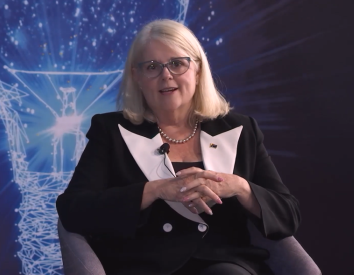The Government clearly let politics influence the migration outcome, issuing way more partner visas compared with previous years, writes Lina Li.
THE DEPARTMENT OF HOME AFFAIRS published its ‘2020-21 Migration Program Report’ for the program year to 30 June 2021. The partner visa stands out as being the biggest winner in this program year’s migration program outcome.
Skilled visas versus family visas — a 50/50 split
Traditionally, the Government tried to keep a two-thirds/one-third split between the skill and family streams (93.5% of the family visas are partner visa in this program year). This year, of the total 160,000 permanent places, 79,620 were delivered in the skill stream whereas 77,372 were in the family stream — nearly a 50/50 split between these two streams.
According to statistics released by the Department of Home Affairs:
- for program years 2010-2017, there had been around 120,000 skilled visas and nearly 60,000 family stream visas, being half of the skilled visas steadily;
- program years 2017-2020 saw a slight fall in the number of family stream visas, being less than 50,000 in all three years; and
- for program year 2020-2021, there was a sudden rise in the grant of family stream visas — 77,372, near double of how many were granted in the previous program year.

This is no doubt great news for couples who have been agonising over their immigration status for years. However, as there are a certain number of permanent places available in every program year, this inevitably meant qualifying visa applicants from the skill streams have to wait for a longer time to get their visas, if some of them can still get one at all.
Offshore versus onshore partner visas — a 1/2 split
- In 2010-2011, 25% of partner visas were granted to people who were in Australia. 75% were granted to people who were outside Australia.
- There had always been considerably more partner visas issued to people who were outside Australia than inside Australia from 2010 to 2019.
- For the first time in the last decade, more than half of the partner visas were granted to people who were in Australia in the 2019-2020 program year.
- In the past program year, partner visas granted in Australia were nearly twice the number of offshore partner visas granted.

There is no room to dispute that global travel restrictions, a result from the COVID-19 pandemic, have hindered family reunification worldwide.
In theory, partner visas should not be affected by the travel restrictions, as partners are considered an “immediate family member” of an Australian and as such, exempt from Australia’s travel restrictions.
The problem is, the assessment of a “partner” when one applies for a travel exemption differs grossly from the assessment conducted for a partner visa application. Many genuine partners were refused travel exemption and have had to live apart from their Australian partners since the start of the pandemic. The significantly smaller number of offshore partner visa grants from this program year would undeniably cause more suffering to this cohort.
On 27 June 2021, the Migration Institute of Australia wrote to the Australian Border Force and the Department of Home Affairs, raising significant concerns regarding the assessment of “immediately family members” of Australians:
‘In particular, we wish to highlight some concerning features of decision-making in relation to the assessment of “immediate family members” of Australian citizens, permanent residents, or New Zealand citizens usually resident in Australia and compassionate and compelling cases.’
Upset offshore partners of Australians have gathered online, calling on the Australian Government to process offshore partner visas in a reasonable timeframe so their families can be reunited.
They have demanded:
‘Transparency and equal service for all $7,715 partner visas.’
No change or improvement occurred after these complaints to date. We can only hope the travel restrictions are lifted soon and offshore partners can travel here to be with their Australian families.
Refusal rate: 10% versus 2% — what’s changed?
Perhaps the most jaw-dropping figure is the refusal rate for this program year — 2%. Partner visas had a refusal rate of 10% in the 2017-2018 program year, after continuing to have a relatively high refusal rate of over 8% from the 2017 to 2020 program years.

What has changed? Did migration laws and policies regarding the partner visa change?
There is an easy way to find out. Most visa refusal and cancellation decisions can be appealed with the Administrative Appeals Tribunal (AAT). The AAT apply the same migration laws and policies when reviewing these applications.
In 2018-2019:
- the Government refused 9.4% of partner visas; and
- the AAT set aside 51% of refused or cancelled partner visas, including setting aside 52% of partner visas refused onshore and 53% refused offshore.
In 2020-2021:
- the Government refused 2% of partner visas; and
- the AAT set aside 58% of refused or cancelled partner visas, including setting aside 59% of partner visas refused onshore and 60% refused offshore.
The number of partner visas refused by the Government has decreased by almost 8% of what it used to be in 2018-2019 while no significant migration laws or policies regarding partner visas have changed.
The AAT has been making consistent decisions in regard to partner visas in both program years, confirming that migration laws and policies governing partner visas have remained largely the same in those years.
If it has nothing to do with migration laws and policies, why has the Government become so enthusiastic about approving more partner visas in the last program year?
Here are a few clues. Labor MP Julian Hill requested the Australian National Audit Office to conduct an audit into the partner visa process in August this year. His claimed issues covered the Department’s illegal capping on partner visas, prolonged processing time, discrimination against people whose first language were not English and so on.
Former Deputy Secretary of Department of Immigration Dr Abul Rizvi published an article giving details about the Government’s illegal action on partner visas in the past few years: ‘Home Affairs and the great partner visa cover-up’.
When will our Government realise this is someone’s life, not some politician’s political campaign. It is unfortunate to see a migration decision has more to do with politics and less to do with migration laws and policies.
Lina Li works as an immigration consultant in the immigration industry. She has extensive experience in the corporate migration sector and works closely with government agencies in making changes to the current migration program. You can follow Lina on Twitter @LinaImmigration.
Disclaimer: Any views or opinions represented in this article belong solely to its author. They do not necessarily represent those of people or organisations that the author may be associated with.
Related Articles
- Uncertainty looms for offshore visa holders
- Outcome of 2020-21 Migration Program: Alex Hawke panics on immigration
- Bridging visa boom sparks audit request
- Temporary entrants in Australia: Who is left and what is to come
- Rules around travel exemptions unclear, stranding Australians
 This work is licensed under a Creative Commons Attribution-NonCommercial-NoDerivs 3.0 Australia License
This work is licensed under a Creative Commons Attribution-NonCommercial-NoDerivs 3.0 Australia License
Support independent journalism Subscribe to IA.














